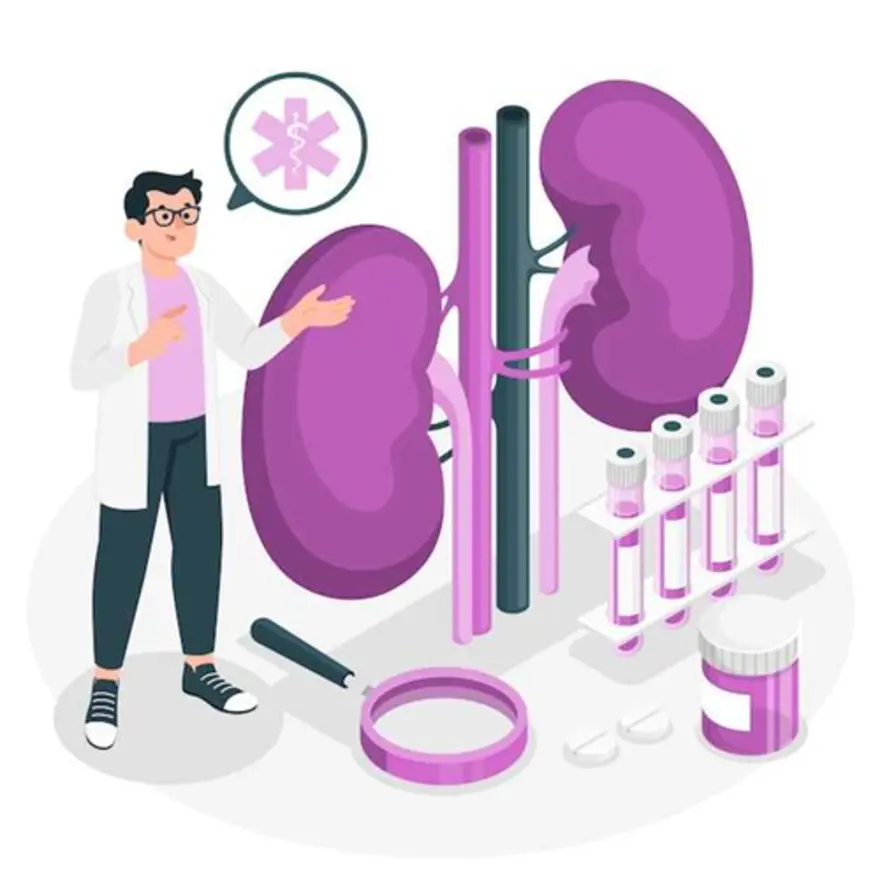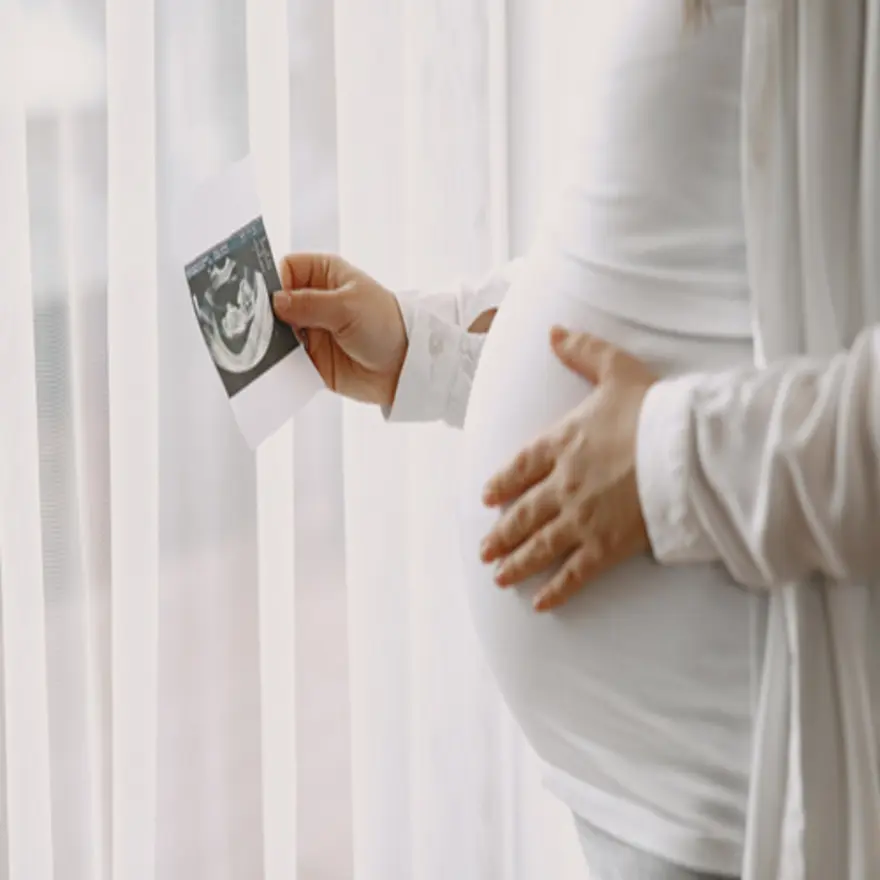Preventive Healthcare
Twin Pregnancy: What Do Twins Or Multiples Mean For Mom?
10176 Views
0

A twin pregnancy occurs when the uterus contains two fetuses. This is a rare event that is attributed to genetics, IVF, or other factors like family history, etc. Your doctor will identify the twin pregnancy with an ultrasound. A twin pregnancy increases the chances of the occurrence of a wide range of complications for both the pregnant woman and the fetus, necessitating prenatal care.
How Do You Get a Twin Pregnancy?
Although a twin pregnancy happens by chance, certain factors are at work as well in other cases. A twin pregnancy, for example, is more likely to occur at the ages between 30 and 40 years. This usually happens due to hormonal fluctuations that cause more than one egg to be released at the same time. Moreover, using reproductive techniques like IVF (in vitro fertilization) increases the likelihood of having a twin pregnancy.
Types of Twin Pregnancy
There are two different types of twin pregnancies.
- Fraternal Twins: The most common type of twin is what is known as fraternal twins, which happens when two different sperms fertilise two different eggs. Each child in a twin has a separate amniotic sac and placenta. The twins may be a pair of boys, a pair of girls, or a pair consisting of a girl and a boy.
- Identical twins: Identical twins are formed when one fertilised egg breaks and forms two different fetuses. Identical twins are connected with the same placenta and amniotic sac. However, in some cases, they might have a common placenta but a separate amniotic sac. The twins are genetically identical. They will be of the same gender and have similar physical characteristics.
Symptoms of Twin Pregnancies
Every woman may uniquely experience twin pregnancy symptoms. In general , symptoms of a twin pregnancy include:
- The uterus becomes larger than expected for the pregnancy dates
- Morning sickness increases
- An increase in appetite
- Excessive weight gain, particularly in the early stages of pregnancy
- Fetal movements are felt in various parts of the abdomen at the same time
- High levels of a pregnancy hormone known as HCG (human chorionic gonadotropin), or a protein produced by the liver of the fetus, known as alpha-fetoprotein (AFP)
What Distinguishes a Twin Pregnancy Belly From a Singleton Pregnancy Belly?
A twin pregnancy belly will be visible from the start of the pregnancy. You may require maternity clothing soon after learning about your pregnancy. Because of the extra weight gain, your growing bump may outgrow your clothes. During a twin pregnancy, the average weight gain is around 50 pounds, whereas it is 30 pounds for a single pregnancy.
What Do Twins or Multiples Mean for Mom?
A twin or multiple pregnancies possesses a few aspects that are different from those of a singleton case.
- Frequent Doctor Visits: You will have to visit your doctor frequently to monitor the normal growth of your baby, for signs of premature labour, and for your health. As your pregnancy progresses, you may require multiple ultrasounds and tests.
- More Weight Gain: For women who were of normal weight before pregnancy, the recommended weight for twins is 37 to 54 pounds (about 17 to 25 kilograms). This is typically accomplished by consuming an additional 600 calories per day. Consult with your doctor to know what is best for you.
- Preterm Delivery: If labour does not begin spontaneously at the time of delivery, your doctor may suggest labour induction or a C-section in the third trimester to save you from several complications.
Tests Required for Pregnancy
The following tests are required for pregnancy.
- Prega Pro Test: Prega-Pro is a pregnancy test package that includes urine tests, CBC, Blood Group ABO & Rh Typing, Routine Infection Screen, Thyroid tests, Thalassemia Screening, Diabetes Screen, and PregaScreen Dual. The patient is covered by the test package from 9 weeks to 9 months of pregnancy.
The above-mentioned tests are performed during the initial visit, and Pregascreen dual is performed between 11 and 13 weeks of pregnancy. Karyotyping/FISH is performed at no additional cost in the case of a high-risk pregnancy. In addition, patients can receive a 25% discount on any blood test performed during their pregnancy. To see the prices, visit Metropolis Healthcare.
- Prega Plus Test: Prega-Pro is an all-in-one pregnancy test that includes Thyroid tests, CBC, Blood Group ABO & Rh Typing, Urine tests, Routine Infection Screen, Diabetes Screen, Thalassemia Screening, Vitamin levels, partner testing for selected parameters, and PregaScreen Dual. The patient is covered by the test package from 9 weeks to 9 months of pregnancy.
The above-mentioned tests are performed during the initial visit, and Pregascreen dual is performed between 11 and 13 weeks of pregnancy. Karyotyping/FISH is performed at no additional cost in the case of a high-risk pregnancy. In addition, patients can receive a 25% discount on any blood test performed during their pregnancy. To see the prices, visit Metropolis Healthcare.
Ten Facts About Twin Pregnancy
Here are some facts about twin pregnancy.
- You are more likely to have twin pregnancies naturally between the ages of 30 and 40.
- You need extra folic acid to stave off birth defects in your twin pregnancy.
- You need frequent doctor visits in a twin pregnancy to monitor the growth of the twins.
- Morning sickness is worse in twin pregnancies than in single pregnancies.
- Spotting in the first trimester is common in twin pregnancies.
- You put on more weight in a twin pregnancy than in a single pregnancy as there are two children inside you.
- You are at a higher risk of gestational diabetes in twin pregnancy.
- In a twin pregnancy, you are more likely to develop preeclampsia (high blood pressure).
- You may experience early labour in a twin pregnancy.
- C-section delivery is more common in twin pregnancies than in single pregnancies.
Taking Care of Your Twins
Having twins has the same requirements as having a single newborn. However, you may require more care and rest than anticipated, particularly if you have had a premature delivery. You're also more likely to suffer from post-pregnancy depression. Consult your doctor if you experience any of the signs of post-pregnancy depression. Spare some time for yourself, and seek assistance from friends and family whenever needed. See your doctor at the scheduled time and book your tests at Metropolis Healthcare.























 WhatsApp
WhatsApp